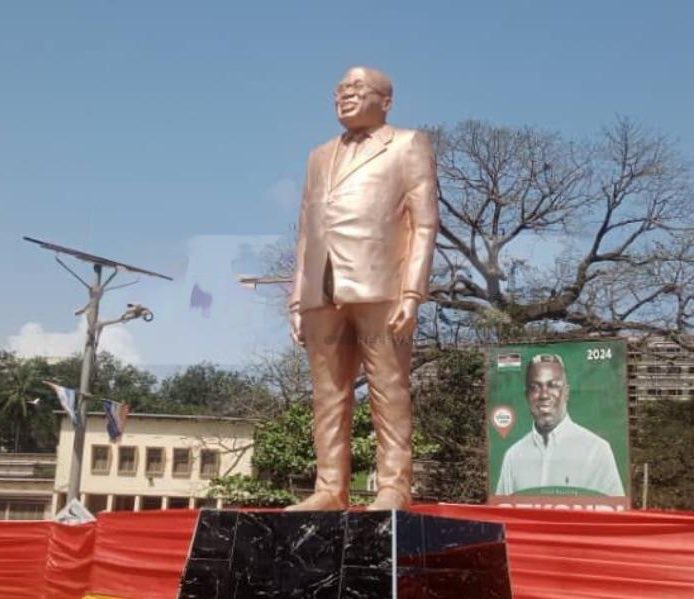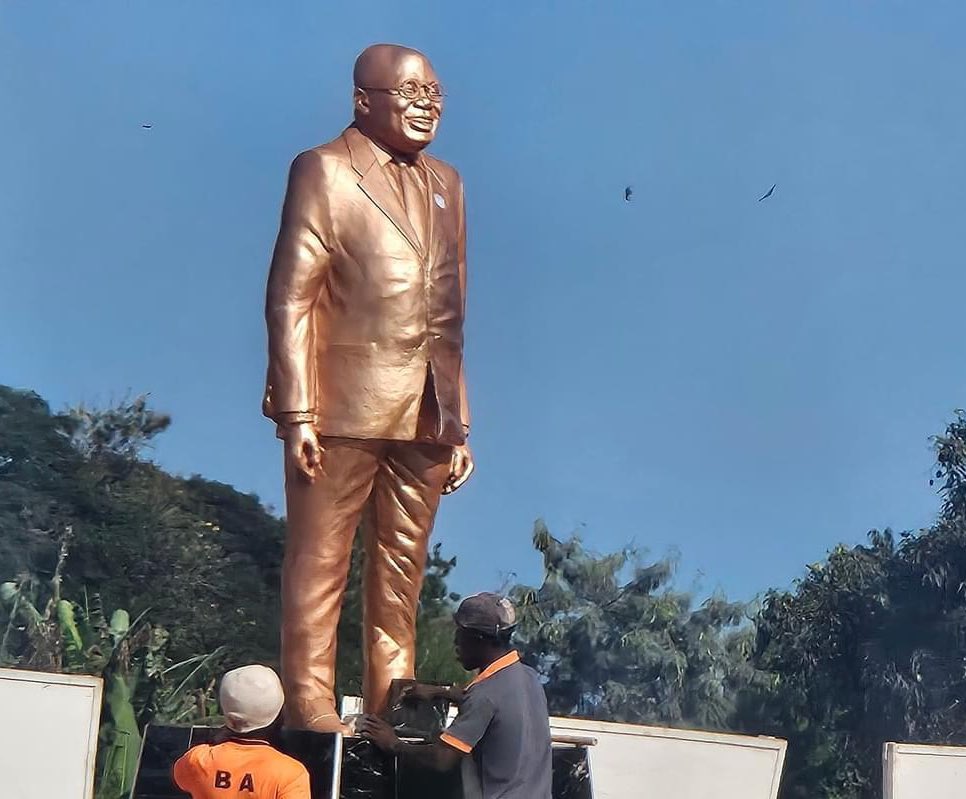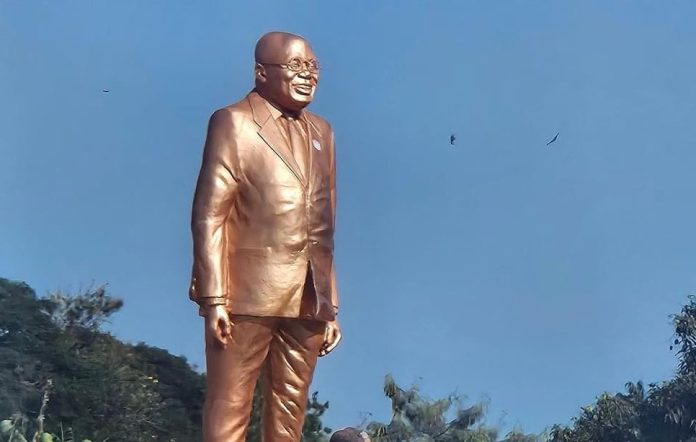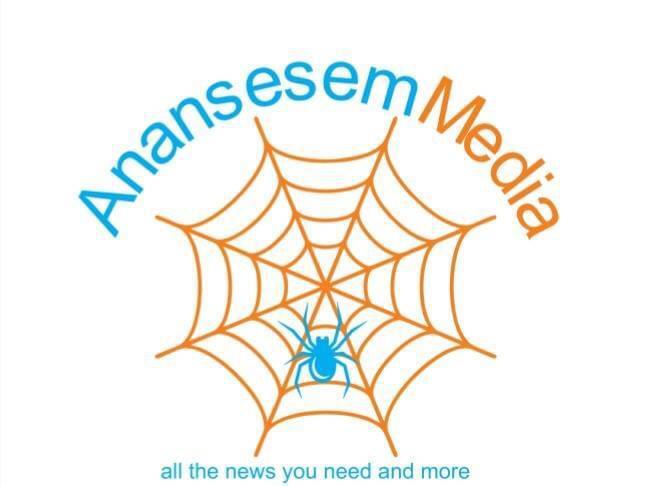President Nana Addo Dankwa Akufo-Addo recently unveiled a statue of himself at the entrance of Effia-Nkwanta Regional Hospital in Sekondi as part of a one-day “thank you” tour in Ghana’s Western Region. The statue, placed prominently at the hospital’s entrance, symbolizes his commitment to improving healthcare infrastructure and accessibility across the nation.

During the ceremony, President Akufo-Addo emphasized the importance of quality healthcare for all Ghanaians. He underscored that accessible medical services are essential, particularly for communities in regional areas, where healthcare facilities frequently struggle with limited resources. His administration has long focused on enhancing regional healthcare to close the gap in medical services between urban and rural areas.
Effia-Nkwanta Regional Hospital has played a crucial role in serving the Western Region for years. However, like many regional hospitals, it has faced challenges such as inadequate funding, a shortage of medical personnel, and aging infrastructure. The government has recently increased its focus on strengthening such regional hospitals to ensure they can provide comprehensive care for their communities. The statue unveiling highlights ongoing efforts by Akufo-Addo’s administration to prioritize regional healthcare as part of its broader health policy.
This event comes amidst ongoing initiatives by the Ghanaian government to boost the healthcare system through increased investment in medical facilities, equipment, and training. By dedicating resources to regional hospitals, the government aims to make healthcare more equitable across the country. It is expected that these improvements will help provide timely and high-quality healthcare to all citizens, regardless of their location.

In addition to unveiling the statue, President Akufo-Addo expressed gratitude to the Western Region’s residents for their support, pledging to continue supporting their healthcare needs. His visit underlines a commitment to not only enhance healthcare access but also to engage directly with communities about their needs and challenges.




